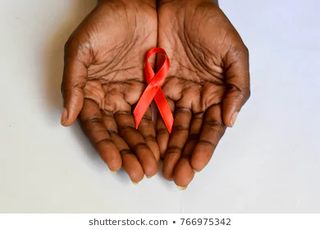Coronavirus Disease 2019
Psychological Aspects of Pandemics: Covid-19 and HIV
Psychological consequences of Covid-19 may be contextualized by examining HIV.
Posted March 25, 2020 Reviewed by Gary Drevitch
Guest post by Ashraf Kagee, Stellenbosch University, South Africa
With the considerable anxiety and uncertainty associated with the Corona-19 pandemic, it is useful to think about what we already know about psychological responses associated with another global pandemic, namely HIV and AIDS. However, in as much as both Corona and HIV are global pandemics, there are some important differences in these conditions in terms of how they are spread, how people respond to them, and how they are managed.
First, the level of stigma associated with the two conditions is not the same. One of the most important differences between HIV and Corona is the way infection occurs. HIV is contracted through the exchange of body fluids, most commonly through sexual contact, through mother to child transmission, and through intravenous drug use. The risks associated with HIV infection include having unprotected sex with multiple sex partners, including among same-sex male partners. In most cases, HIV infection is associated with sexual volition, except of course among children, those in oppressive sexual relationships, or among survivors of sexual assault.
Given the complex manner in which society views sexuality and sexual expression, HIV is often a highly stigmatised condition. Persons living with HIV are thought to have violated social, religious, and moral norms that assume fidelity to a single partner, usually in the context of a heterosexual relationship. The reality, of course, is that sexuality is complex and heteronormativity is a form of social oppression against LGBTI persons. Nonetheless, in some contexts HIV-infected persons are thought to be repulsive and have been subjected to considerable discrimination and oppression, including violence and in some cases death.
While persons infected with Corona-19 have indeed been stigmatised, this has not occurred at the same level as HIV. Some political leaders have started referring to Corona-19 as the “Chinese Corona virus” in a blatant attempt to exploit xenophobic sentiments among the public. However, a virus has no nationality and such references are divisive. One of the issues we have to remain alert to in relation to the Covid-19 pandemic is discrimination on the basis of nationality, race, or immigration status. Nonetheless, it is rare for someone to be blamed for having Corona in the same way that persons living with HIV often are. The key difference between HIV and Corona-19 is probably in the way these conditions are contracted: HIV by sexual means and Corona-19 through general social interaction.

Second, the emotional responses associated with the two conditions are different. People especially vulnerable to HIV infection include those who have unprotected sex, sex with multiple partners, and those who use intravenous drugs. Persons who receive an HIV positive test result usually experience considerable distress, worry, and counterfactual thinking about how they could have avoided infection. Their key concerns are impending physical decline and possible death, gaining access to treatment, maintaining good adherence levels to antiretroviral therapy, dealing with stigma and discrimination, and having to make decisions about disclosure of their status to others.
With Corona-19 the risk of infection is distributed to the entire world population, which is why it has caused so much panic and anxiety. The effect of the virus on social behaviour is considerable as members of the public are encouraged to practice social distancing and, for those infected, to isolate themselves. Most people infected with Corona-19 are likely to survive, with the exception of particular risk categories including those with pre-existing health conditions, who are at higher risk of mortality. Anxiety about survival is therefore likely to be confined to these groups. However, general anxiety about infection and the practical implications of self-isolation or quarantine is more likely to be the case among the general population. Having to isolate or be quarantined is a disruption to people’s routines, which in turn will have implications for work and school attendance and financial loss. The content of the distress and the need to problem-solve around these matters may be considerable but are different from the concerns associated with HIV.
Third, the illness trajectory of the two conditions is different. In the 1980s, early in the HIV pandemic, receiving an HIV positive test result was often thought of as a death sentence as there was no treatment available to control the disease progression. With the availability of antiretroviral therapy (ART) since the 1990s, it has subsequently been conceptualised as a chronic condition, similar to diabetes or hypertension. There have been considerable public campaigns in several countries aimed at reducing HIV-related stigma and ensuring the human rights of persons living with the condition. With proper access to ART and optimal adherence, persons living with HIV can expect to survive for several decades. The practical concerns of living with HIV are accessing proper health care, being able to adhere to a medication regimen and managing stigma.
Corona-19, on the other hand, is not a chronic condition. Most of those infected with Corona-19 recover, while some, such as elderly persons and those who have underlying health conditions, may not. The practical concerns dissipate when the person recovers, although there may be concerns about reinfection if the pandemic is not controlled in the near future.
There are very intense psychological and emotional consequences associated with both HIV and Corona-19 but they are different in terms of their timing, content, and implications. Persons who are emotionally distressed following receipt of an HIV positive test result require social support and in some cases psychological counselling to help them manage their emotional responses. Counselling about practical matters such as accessing health care and disclosure will also likely be helpful. Some individuals may indeed have a common mental disorder such as major depression or generalised anxiety, although these are likely to have existed prior to their HIV condition. Persons infected with Corona also require support to manage their anxiety and worry, especially if they are in high-risk groups. Support also has to be given to manage the practical considerations around self-isolation and quarantine. The social isolation of living under these conditions can lead to loneliness and distress.
Individuals and communities can be very helpful in this time of uncertainty; for example, by providing social support by telephone or text, delivering food to elderly persons who may feel anxious about leaving their homes, and keeping children entertained through reading and story-telling. Whatsapp and other forms of social media can be helpful for people to remain in touch with each other, although there is a risk of over-exposure to news, leading to further stress. Physical exercise including progressive muscle relaxation, calm breathing, and guided imagery can be helpful for some people who experience elevated stress, anxiety and tension.
Both HIV and Corona-19, along with other conditions, bring into focus the fragility of the human condition, both physical and psychological. As a global health crisis, the Corona-19 pandemic has forced us to rethink the way in which we live in a globalised world. The interconnectedness of global markets, trade, migration, and commerce has ushered in unprecedented wealth but also vast social and economic inequality. Perhaps it is time to pause and rethink the way in which we relate to our fellow humans, such as people living in poverty, those affected by political, social and gender oppression, those discriminated against because of their health conditions or sexual orientation, economic migrants and persons with a refugee background.
Covid-19 is a reminder that people are connected to each other, regardless of their social status, and that a shared vision of humanity’s future is needed.
References
Kagee A, Saal W, Bantjes J. (2017) Distress, depression and anxiety among persons seeking HIV testing. AIDS Care. 29(3):280-284. doi: 10.1080/09540121.2016.1259453.




